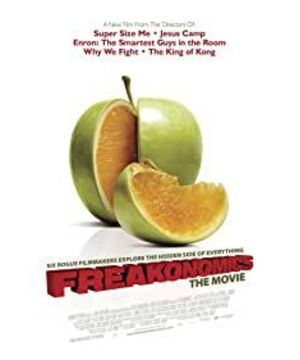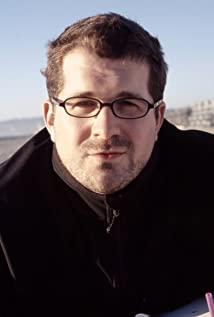The biggest disadvantage of this film is that it is too scattered. There are a total of 6 directors and 5 production teams to complete:
1. Intro & Transitional Segments (including Real Estate, Parenting, Cheating, Cause & Effect, Incentives) 1 director
2. A Roshanda by Any Other Name 1 director
3. Pure Corruption 1 director
4. It's Not Always A Wonderful Life 1 director 5. Can you bribe
a 9th grader to succeed?
:
0. Real Estate
Does real estate agent really represent your interest?
Incentives matter!!! If you can figure out what people's incentives are, you have a good chance of guessing how they are going to behave.
1. Parenting (4'26 ''-)
Levitt explains what he does in research: to figure out tricky ways to get a causality. There's a difference between causality and correlation.
2. A Roshanda by Any Other Name
(Shakespeare quote: A rose by any other name would smell as sweet. )
(from Chapter 6 of the original book)
Does name matter? Does name define your destiny?
Resume experiment: African American names vs. White names
View point: Name may not define your destiny but it can dictate the ways other ppl perceive you.
3 . Cheating
(3&4 from the first chapter of the original book: How are teachers and sumo wrestlers alike?)
Teachers could cheat.
4. Pure Corruption (24'20''-47'48'')
Corruption in the Sumo World with reference to Bernie Madoff (corruption in the realm of high finances)
*mistranslation: SEC (not SCC)
It's like a crime documentary, with a bit of a mystical feel to it. The subject matter that could have been made into a separate film is too short and the language is unknown. Japanese culture has its own mysterious appeal to Western audiences/readers. It also mentioned the self-censorship of Japanese and American media, which has a certain meaning of self-criticism.
Levitt: The only way to combat corruption is to change rules and undo corruption incentives, unleash more investigative reporters and to develop strong protections for whistle blowers.
5. Cause & Effect (47'49''-49'10'')
Does ice cream cause polio?
6. It's Not Always a Wonderful Life (from chapter 4 of the original book)
Reasons why crime rates drop considerably in the 1990s?
Look and feel: The most interesting and surprising discovery of the entire film.
6 most popular explanations (with authors' verdict): More innovative policing (0%), harsher criminal policing (30%), changes in the crack market (15%), increase gun control, a strong economy, more police on the street (the last three about 10% in total).
(There is no explanation for how to get these numbers. This may be the reason why some economists criticize the two authors for describing econometrics. Is there no explanation in the original book?)
Almost half of the drop left unexplained. Levitt's answer : Roe vs. Wade (the legalized abortion in 1970s)
Unwanted children were not born…
"Unintended consequence of legalized abortion"
Argument about this conclusion (translated from Wikipedia):
Boston Fed economists pointed to Levitt's original paper after book publication Statistical errors in , correction of these errors do not lead to the conclusion that the legalization of abortion is the reason for the decrease in crime rate. Levitt responded that the Boston Fed economist's correction was also flawed due to a severe attenuation bias. After correcting for his own original error, the link between miscarriage and crime was weaker, but still statistically significant. The two Boston Fed economists were quick to offer a rebuttal: Even when the data were analyzed using Levitt's suggested method, the data did not show a positive relationship between miscarriage rates and crime rates. They are quick to point out that this does not negate Levitt's paper, stressing that because the data is so messy and incomplete, it is likely not even possible to prove or disprove Levitt's conclusions.
7. Incentives
How Levitt failed to potty-train his daughter with her favorite M&M chocolates within three days.
8. Can a 9th grader be bribed to succeed?
Interesting (but costly) experiment again!
Look and Feel: This is the most touching part of the movie and it sort of resonates with the segment on Parenting. But again the authors' view on parents' role in a child's growth is ambiguous.
View more about Freakonomics reviews











